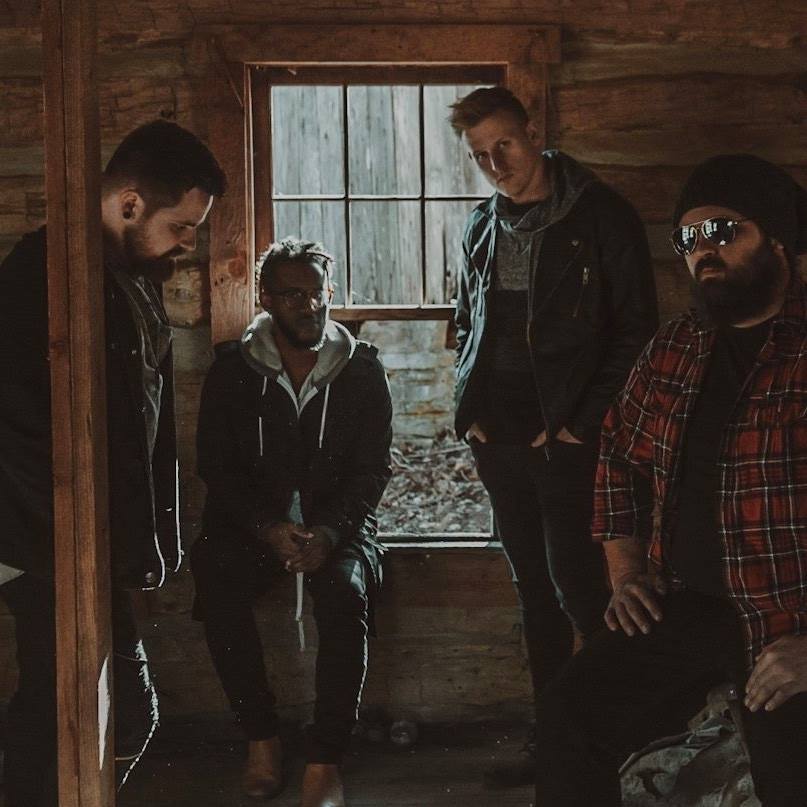Ever listen to a band for the first time and start diving into them almost immediately, then wonder why they’re not much bigger, placing on big rock festival lineups and touring relentlessly? Sometimes it’s fate. Sometimes it’s bad luck. Sometimes it’s being too good at something – or too early to pioneer. It happens! If you are lucky enough to find a band like that, supporting them as fans is important.
(Editor’s Note: Why Isn’t This Band Famous? is a new occasional feature section for bands that completely blow away our expectations and are considered worth an immediate listen. This is a special, special group.)
That latter category, though, belongs with Oklahoma alternative rock band Fight The Fade. Quite frankly, upon the first listen to 2014’s Second Horizon, I was stunned they’d slipped past me. Alternative rock can and has, over the years, produced albums that transcend even just that genre – becoming pop culture history forever. Nirvana transcended musical taste outside of grunge – Cobain worshiped indie rock bands.
What this album (and band, through multiple EP releases and another full-length in 2016) hit my ears, my jaw hit the floor several times. At its core, it’s a tightly structured alt-rock affair, not sounding too far away from the Breaking Benjamins and Chevelles of the world. That’s a great place to be, as those bands innovate and write great songs, but it sure seems like Fight The Fade have those same sort of huge, anthemic qualities. Vocalist Zene Smith has real, passionate intent behind his singing, managing to hit every note a Brent Smith or Myles Kennedy can. It’s really impressive – and even though some of modern rock operates in the safe, not taking chances mode, there are plenty of exceptions – and Fight The Fade appears to be one.
You can probably compare Fight The Fade favorably to almost any rock band that’s got a much bigger fanbase. Take a song like “Re-Archetype”, for instance. Near the end of the song where crashing, pulsing guitar riffs start to fade into the track’s end – but it doesn’t happen at first, extending the songs by about 20+ seconds, and creating a more intense or emotional song. Every song on the record quakes with the anthemic quality I mentioned, but in different ways. Sometimes it’s the more melodic, emotive electronic-influenced alt-rock of “Rise” and “Monolith” which form two different, yet important dynamics of the record – tempering heavy with soft for a diverse sound that can go many directions. In the framework of modern rock, that is a HUGE step.
The lyrics are as solid as they need to be, mainly telling stories of redemption, hope, and issues that feel relevant and poignant. Some bands try this and ultimately it proves to be too much to be anything profound, but Fight The Fade manage to get this done with a great mood and atmosphere that appeals to a diverse crowd of people, as well as challenge themselves with interesting and well-crafted music.
Know who else qualified as that band a few years back? Texas rock band Nothing More. After toiling as a popular independent act for years, their big break was a few years ago when they dropped 2 big full-lengths on us with a heady blend of alt-rock, pop hooks, and progressive metal song structures on occasion (as well as inspirational lyrics) got the band nominated for a Grammy award, which, while not always the most obvious form of success, gave the band a huge career right now. Fight The Fade should be in that category, too. While their style of alt-rock has been played by many, from Starset to Red, it’s impressive how their heavier metal influences (maybe even modern metalcore) shine through on even the more melodic songs. Jaw-dropping at times and merely very good at others, there’s little reason to think Fight The Fade doesn’t deserve their success. Clearly, they’ve got something to play – and say.





More Stories
Waxahatchee delivers a lengthy set to a packed Salt Shed for a great show
Fit For A King give Green Bay a very heavy 420
Bring Me The Horizon and Sleep Token deliver an unforgettable show at Melbourne’s Rod Laver Arena